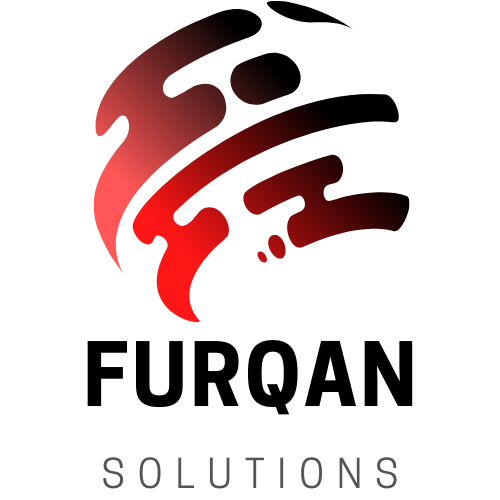Introduction
In our modern world, technology is ubiquitous, weaving itself into almost every aspect of our daily lives. From the moment we wake up to the second we fall asleep, our devices are constant companions. However, while technology has undoubtedly brought convenience and innovation, it has also introduced challenges, particularly in relation to sleep quality. Understanding the impact of technology on sleep and implementing a digital detox can significantly enhance our well-being. In this article, we will explore how technology affects sleep and provide practical tips for a digital detox to improve your sleep quality.
How Technology Affects Sleep Quality
Blue Light and Sleep Disruption
One of the primary ways technology impacts sleep is through exposure to blue light emitted by screens on smartphones, tablets, computers, and televisions. Blue light has a short wavelength and high energy, which can interfere with the production of melatonin, the hormone that regulates sleep-wake cycles. When melatonin levels are suppressed, falling asleep and staying asleep can become challenging.
Studies have shown that using devices emitting blue light before bedtime can delay the onset of sleep and reduce sleep quality. This disruption occurs because blue light exposure tricks the brain into thinking it is still daytime, thereby postponing the natural sleep signals.
Mental Stimulation and Sleep Quality
Engaging with technology, especially interactive content like social media, video games, or work-related emails, can overstimulate the brain. This mental stimulation keeps the brain active, making it difficult to wind down and transition into a restful state. Additionally, the constant flow of information and notifications can lead to increased stress and anxiety, further impeding the ability to relax and fall asleep.
The Vicious Cycle of Sleep Deprivation
Poor sleep quality caused by technology use can lead to a vicious cycle of sleep deprivation. When individuals do not get enough restful sleep, they may feel the need to rely on caffeine and stimulants to stay awake during the day. This, in turn, can further disrupt the sleep-wake cycle, perpetuating the cycle of inadequate sleep and daytime fatigue.
Tips for a Digital Detox to Improve Sleep Quality
Create a Bedtime Routine
Establishing a consistent bedtime routine can signal to your body that it is time to wind down and prepare for sleep. Aim to follow a routine that includes relaxing activities such as reading a book, taking a warm bath, or practicing mindfulness meditation. Consistency in your pre-sleep rituals can help train your brain to recognize when it is time to sleep.
Limit Screen Time Before Bed
One of the most effective ways to mitigate the impact of technology on sleep is to limit screen time in the hour leading up to bedtime. This means turning off electronic devices such as smartphones, tablets, and computers. Instead, opt for activities that do not involve screens, such as reading a physical book or listening to calming music.
Use Blue Light Filters
If you must use electronic devices in the evening, consider utilizing blue light filters or “night mode” settings available on most smartphones and computers. These filters reduce the amount of blue light emitted by screens, thereby minimizing their impact on melatonin production. Additionally, you can invest in blue light-blocking glasses, which can be worn while using screens to further reduce exposure.
Design a Tech-Free Bedroom
Creating a sleep-friendly environment involves designing a tech-free bedroom. Remove electronic devices from your sleeping space, including televisions, computers, and smartphones. If you use your phone as an alarm clock, consider switching to a traditional alarm clock to eliminate the temptation to check notifications before bed.
Set Boundaries for Technology Use
Establishing boundaries for technology use can help prevent it from interfering with your sleep. Set specific times during the day when you check emails, social media, or news updates, and stick to these times. Avoid bringing work-related tasks into your bedroom, and designate it as a space for relaxation and sleep.
Practice Mindfulness and Relaxation Techniques
Incorporating mindfulness and relaxation techniques into your daily routine can help counteract the mental stimulation caused by technology use. Practices such as deep breathing exercises, progressive muscle relaxation, and guided imagery can calm the mind and prepare it for sleep. Additionally, mindfulness meditation can help reduce stress and anxiety, promoting better sleep quality.
Stay Physically Active
Regular physical activity can improve sleep quality by promoting the natural regulation of sleep-wake cycles. Aim to engage in moderate exercise, such as walking, jogging, or yoga, for at least 30 minutes a day. However, avoid vigorous exercise close to bedtime, as it can have the opposite effect and make it harder to fall asleep.
Maintain a Consistent Sleep Schedule
Keeping a consistent sleep schedule is crucial for regulating your body’s internal clock. Try to go to bed and wake up at the same time every day, even on weekends. Consistency helps reinforce your sleep-wake cycle and improves the quality of your sleep over time.
The Benefits of a Digital Detox
Implementing a digital detox can yield numerous benefits beyond improving sleep quality. By reducing technology use, you can experience:
- Enhanced Mental Clarity: A digital detox can reduce mental clutter, leading to improved focus and cognitive function.
- Reduced Stress and Anxiety: Disconnecting from constant notifications and information overload can decrease stress and anxiety levels.
- Improved Relationships: Spending less time on devices can foster more meaningful interactions and strengthen personal relationships.
- Increased Productivity: With fewer digital distractions, you may find yourself more productive and efficient in your daily tasks.
Conclusion
While technology has become an integral part of modern life, it is essential to recognize its impact on sleep quality and take proactive steps to mitigate its effects. By understanding the ways in which technology disrupts sleep and implementing practical tips for a digital detox, you can enhance your overall well-being and enjoy more restful, rejuvenating sleep. Remember, the key to a successful digital detox is consistency and mindfulness, ensuring that your relationship with technology supports rather than hinders your health and happiness.



